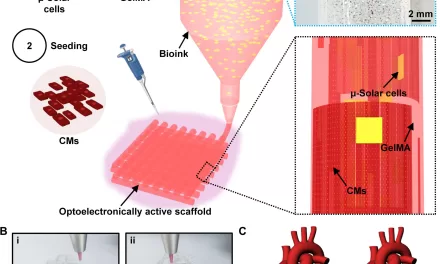New Delhi, September 11, 2024 – NITI Aayog today unveiled a comprehensive report titled “Future Pandemic Preparedness and Emergency Response — A Framework for Action,” offering a strategic blueprint to safeguard India against future public health emergencies. The report, compiled by an Expert Group, emphasizes the need for robust systems to swiftly respond to the next potential pandemic, acknowledging that COVID-19 was not the last health crisis the world will face.
The report highlights that with ongoing changes in planetary ecology, climate, and human-animal-plant interactions, future pandemics are inevitable. According to the World Health Organization (WHO), 75% of future public health threats are likely to be zoonotic in nature—arising from new, re-emerging, or evolving pathogens.
In light of these potential threats, NITI Aayog’s Expert Group was tasked with developing a forward-looking framework, drawing lessons from the COVID-19 pandemic. The group evaluated how the pandemic was managed at both national and global levels, identifying successes and challenges, as well as key gaps that need to be addressed to enhance preparedness and emergency response.
India’s COVID-19 response included significant advancements in research and development, public-private partnerships, global collaborations, and digital tools for managing vaccination and data for over 1.4 billion people. However, the report stresses that the initial 100 days of an outbreak are the most critical for effective pandemic control, urging the country to be ready with rapid strategies during this period.
The Four Pillars of Pandemic Preparedness
The report outlines a 100-day action plan to manage any future outbreak through a well-developed framework. It is built on four key pillars:
- Governance, Legislation, Finance, and Management: Strengthening public health governance, improving legislative frameworks, ensuring adequate financing, and effective management for rapid pandemic response.
- Data Management, Surveillance, and Early Predictive Warning Systems: Building advanced systems for real-time surveillance, forecasting, and predictive modelling to anticipate and manage outbreaks.
- Research, Innovation, and Infrastructure: Fostering innovation in research, enhancing manufacturing capabilities, and developing critical infrastructure and workforce capacity for pandemic response.
- Partnerships and Community Engagement: Encouraging community involvement, risk communication, and collaboration with the private sector and international organizations to ensure cohesive action during crises.
Informed by Experts, Driven by Experience
The report was developed through consultations with over 60 national and international experts across public health, clinical medicine, epidemiology, industry, and academia. These experts, many of whom were at the frontline of India’s COVID-19 response, provided insights into what worked during the pandemic and what needs improvement. The report integrates these experiences into actionable recommendations for future preparedness.
By examining both national and global success stories in pandemic management, the report provides a roadmap for how India can better respond to health emergencies. It aims to build a rapid response system that is not only more effective but also more resilient, ensuring that the country can manage future pandemics with precision and agility.
The report underscores that this framework is the starting point for India’s future pandemic preparedness efforts, encouraging a proactive rather than reactive approach to global health challenges.
For more information, the full report is available online at NITI Aayog’s website.










